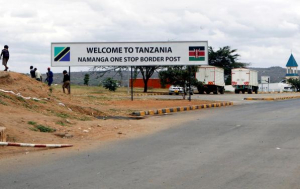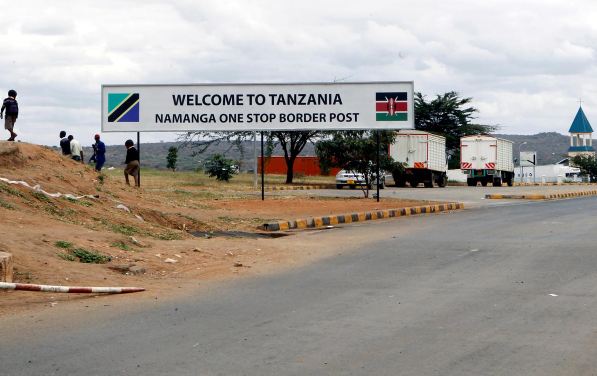OP-ED | Namibia, Botswana and the vision of a borderless Africa, By Thembela Msibi
On September 9, President Hage Geingob of the Republic of Namibia announced the abolition of passport use for travel between Namibia and Botswana, a move that is considered bold in Africa’s over half-a-century quest for regional integration.

Whilst the African Union is pushing for a ‘visa free Africa’, through the instrumentality of its Free Movement Protocol (FMP) and the African Passport, these two states have taken a more progressive step by adjusting their laws to only require ID cards for citizens of each country to cross the other’s borders. These Southern African neighbours have now recognised their shared identity and common heritage and accordingly ditched over a century old artificial border imposed on them by colonial regimes.
Both the FMP and African Passport, which are among the flagship initiatives of Agenda 2063, the strategic framework for Africa’s socioeconomic development, are seeking progressive lowering, and eventual elimination barriers to Africans’ criss-crossing regional borders to visit, trade, live, work, and establish businesses in other countries on the continent, in the spirit of the ‘Africa That We Want’.
In so doing, the two neighbours have proven beyond reasonable doubt, their commitment to the Ubuntu philosophy, the ideals of Pan Africanism and the vision of Africa’s Renaissance as enshrined in Aspiration 2 of Agenda 2063. One of the goals of the Aspiration is “accelerating progress towards continental unity and integration for sustained growth, trade, exchanges of goods, services, free movement of people and capital through establishing a United Africa and fast-tracking economic integration through the implementation of the CFTA.”
In this direction, the African Continental Free Trade Area (AfCFTA), whose operational phase commenced in July 2019, seeks to create a single, liberalized market for goods, services, to be facilitated by free movement of persons in accordance with Agenda 2063’s vision of “An integrated, prosperous and peaceful Africa.” To this end, the the step taken by Namibia and Botswana is premised on the belief that social integration is the strongest enabler of economic integration.
Indeed, the abolishment of visas represents the vision for a borderless Africa which although seem herculean can be achieved through picking of ‘low-hanging fruits’ such as the scrapping of use of passport, coupled with more signatures and ratifications for the FMP, which till date has only been signed by 32 countries and ratified by only 4 (Rwanda, Niger, Mali, and São Tomé and Príncipe).
Due to many concerns by AU Member States, achieving universal ratification of the FMP, or at least, the minimum 15 required for the Protocol to come into force, will not be spontaneous yet, moves such as the one by these two SADC member states is a right step towards achieving the goal of economic liberalisation of the 55-member AU block and the successful realisation of the cherished Africa We Want.
Border-post red tape is a major non-tariff barrier hindering unrestricted movement of goods and free movement of persons. The solution to this persistent and age-long challenge is a One-Stop Border Post (OSBP) concept which refers to “the legal and institutional framework, facilities, and associated procedures that enable goods, people, and vehicles to stop in a single facility in which they undergo necessary controls following applicable regional and national laws to exit one state and enter the adjoining state.”
Thus, the Namanga One-Stop Border Post between Kenya and Tanzania remains a blueprint for literal integration. Trade facilitation measures such as modernising border posts and reconfiguring them to improve their functionality is integral to shaving off transit time and will subsequently allow for more coordinated and integrated border-crossings. One of the goals of the AfCFTA is reducing red tape in intra-African trade as rigid migration rules cause border delays which will consequently inhibit the effective implementation of the Agreement.
Pundits believe the Botswana-Namibia visa abolition is likely to have a domino effect on the rest of the SADC region, fostering regional integration. In this direction, AfCFTA state parties should, as part of their national AfCFTA implementation strategies, commit to bilateral agreements with their neighbours aimed at easing barriers to cross-border movement of persons, goods and services. These will compound to communitization and ultimately engender trade liberalization.
The free flow of goods and services will also allow for the transfer of capital and knowledge critical to Africa’s industrialization. Certainly, the AfCFTA is not a stand-alone Agreement, it necessitates the implementation of a cocktail of policies such as the FMP to facilitate the achievement of the desired goals envisioned by the Agreement. Botswana and Namibia have challenged the rest of Africa’s commitment to the vision of a borderless Africa. One wonders, which countries will step up to this challenge?
Thembela Msibi is a youth-inclusion advocate and communications strategist, currently heading the Communications Directorate of the AfCFTA Youth Advisory Council. The views expressed in it are the author’s and do not necessarily reflect African Newspage’s editorial policy.













